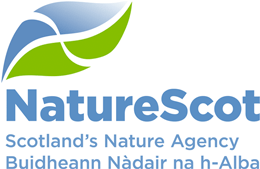20 April, 2017
Public meeting held in Alyth on feral pigs
Around 30 people attended a public meeting hosted by Scottish Natural Heritage (SNH) in Alyth yesterday evening (19 April) to discuss the topic of feral pigs.
It’s estimated there were between 20 and 40 feral pigs in the Alyth Hill area but Forest Enterprise Scotland, which manages the land, believe that most of the animals have been controlled. It appears from camera-trap evidence that there are only one or two left now. However, there are more recent sightings from land further north towards Bridge of Cally, suggesting that some of the animals may have dispersed.
Alyth Hill includes a community woodland which is popular with walkers and other recreational users. The meeting heard from some residents had seen feral pigs in the past, although there have been few sightings recently.
Feral pigs are animals that may resemble wild boar, but are a mix of wild and domestic pigs and have been released or escaped from private collections. Wild boar became extinct in Great Britain about 700 years ago.
Following the meeting, Gavin Clark, Operations Manager for SNH’s Tayside & Grampian Area said:
“I’d like to reassure the public that it’s unlikely that they will encounter feral pigs in Scotland because of their low numbers and because they’re mainly nocturnal. If you do see a feral pig, they’re likely to run away from you. If they don’t, walk away slowly – don’t feed them and keep your dog on a lead.
“While it’s encouraging to hear that the numbers on Alyth Hill are now low, we’re concerned that the animals may have spread to new sites. We’re here to provide advice and coordination if required, but I’d urge farmers, gamekeepers and other land managers to be alert and control any animals which appear on their land. Land managers should talk to their neighbours when they know pigs are around, as piecemeal control isn’t likely to be completely successful. Efforts need to be coordinated so that animals don’t just disperse further. Evidence from elsewhere is that if not controlled, feral pig populations can increase quite quickly and damage to crops and other property may become a problem.”
SNH, along with Perth & Kinross Council, are also asking people in the Alyth and the surrounding area to report any sightings or signs of feral pigs. If land managers have experienced any damage, SNH would be interested to hear about its scale and impact. Report any sightings to SEARS customer service line 08452 302050 (24hrs, 7 days a week).
As as former native species, wild boar are considered to be outside their native range in Scotland. This means that it is an offence under the Wildlife and Countryside Act 1981 to release any type of pig, including wild boar. It’s also an offence to allow them to escape from captivity. Wild boar and feral pigs are forest animals, but they will feed in agricultural land. They eat a wide variety of foods, including plants, small mammals, birds’ eggs, and carrion.
ENDS
Media queries - contact SNH media & public relations officer, Vicki Mowat on 0131 316 2659 or vicki.mowat@snh.gov.uk (Tues to Fri) or the main Inverness press office on 01463 725 022.
Contact information
- Name
- SNH Media
- snhmedia@snh.gov.uk
NatureScot is Scotland's nature agency. We work to enhance our natural environment in Scotland and inspire everyone to care more about it. Our priority is a nature-rich future for Scotland and an effective response to the climate emergency. For more information, visit our website at www.nature.scot or follow us on X at https://x.com/NatureScot
’S e NatureScot buidheann nàdair na h-Alba. Bidh sinn a’ neartachadh àrainneachd na h-Alba agus a’ brosnachadh dhaoine gu barrachd suim a chur ann an nàdar. Tha e mar phrìomhachas againn gum bi nàdar na h-Alba beairteach agus gun dèilig sinn gu h-èifeachdach le èiginn na gnàth-shìde. Tha an tuilleadh fiosrachaidh aig www.nature.scot no air X aig https://x.com/NatureScot
